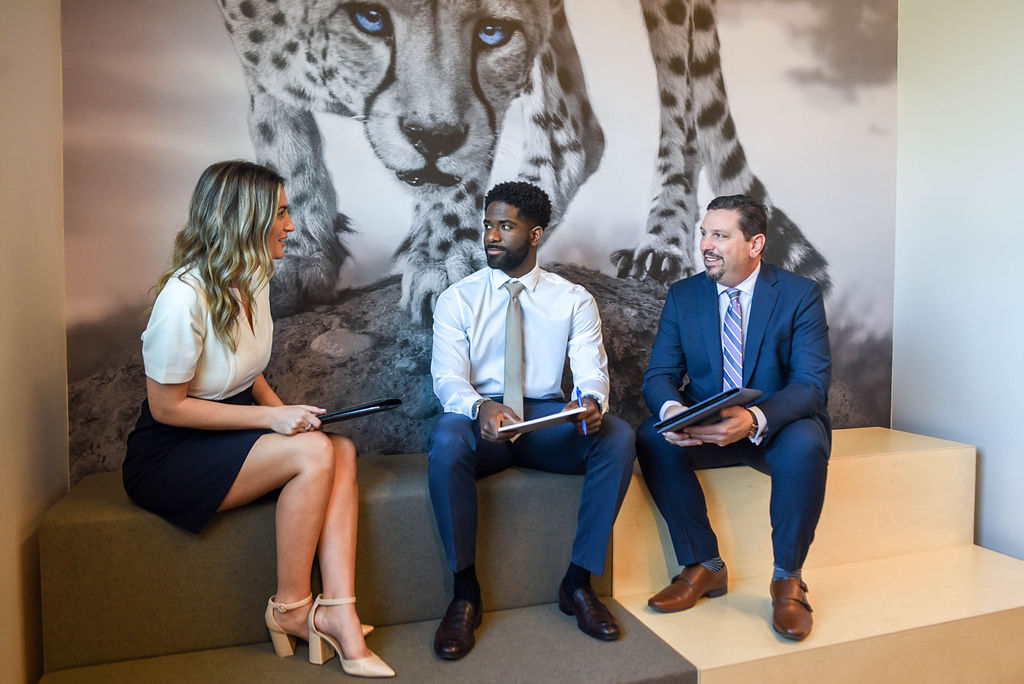5 Ways to be a Vulnerable Leader in the Workplace — And Why It’s So Important
by Julie Turpin, Chief People Officer at Brown & Brown Insurance
A new year is often considered a “clean slate” and a time to set resolutions to better oneself. I believe in setting goals for self-improvement and taking action to achieve them, but I don’t believe we start over at the beginning of the year.
Instead, a new year brings the opportunity to continue building on the life and self you’ve already created and achieved — personally and professionally. For example, many of us have achieved our goal of becoming a leader in our workplace. That achievement isn’t erased on January 1, but in 2023 the question becomes: How will we become BETTER leaders in the new year?
The answer: By leading with our whole selves.
A study published in Mastering Leadership found that we are 93% more likely to be effective when leading with our whole selves. But bringing our whole selves to work can be scary and requires a level of vulnerability historically viewed as inappropriate for the workplace — not to mention from a leader or C-suite executive.
But the world is changing. And vulnerability is now not only accepted in the workplace but seen as a strength and desirable quality in leadership.
So let’s incorporate vulnerability into our company cultures in 2023 and everything that comes with it — more empathy, compassion and stronger collaboration.
Here are five ways you can start this process as a leader:
1. Be present when you’re present. Leadership, just like any relationship, is about showing up. How do you show up for your team and colleagues? It can be difficult to truly be present in today’s “always on” and multi-device environment. One of the most important ways I show up for my teammates is by actively choosing not to check email during our meetings. My attention is on them and the meeting. This makes it possible to catch 100% of the nuance, body language and tonality used by my team. If you sense that your team is stressed, being present doesn’t necessarily mean stepping in to take that stress away. Sometimes it’s just about being available to help them work through the challenge. Everyone wants to feel valued and seen.
2. Choose your words wisely. Language is essential in how we not only show respect but support. Think about how you approach conflict or differences of opinion. Are you displaying curiosity and open-mindedness in how you respond to others? Try incorporating more phrases like “Do you mind if we continue to explore this?” and “I know that didn’t go well, but that’s OK” into your toolbox/backpack of wisdom. Using language to demonstrate that you care about collaboration can build a more nurturing and open environment for everyone around you.
3. Strive for excellence, not perfection. I used to be a perfectionist. Until a business coach of mine observed that my need for perfection was driving people away. I changed my ways overnight. As leaders, we cannot expect our teams to complete their work exactly how we would. There is growth in evaluating the process and finding room for improvement. Beyond not expecting perfection from our teams, we cannot expect it from ourselves. Being vulnerable means allowing yourself to make mistakes and others to see those mistakes. When our teams feel safe to fail, they are more likely to take chances that lead to excellence.
4. Embrace curiosity. Curiosity breeds compassion, and compassion is how we find common ground. Every time I jump to a conclusion about someone, I make myself a note to have coffee with that person. You don’t know what people are going through or the type of day they are having. I know I will feel differently about them once I understand them more. At the same time, practicing gratitude can help shift your outlook from one of assumption to curiosity and see the world and people through a more understanding lens. People remember how you interact with them, so making connections to the whole person — not just the work person — is valuable.
5. Be human. No matter what industry you’re in or your role in it — yes, even if you’re not in human resources — your job is about people and building relationships with people helps get your job done. Connecting with people is also a great way to enjoy your work more. How do you better connect with people? By being vulnerable, showing your humanity and exercising compassion. As leaders, our teams need to feel comfortable coming to us with struggles. They are more likely to feel comfortable knowing that we are also learning, growing, falling and picking ourselves back up.
The Take-Away: When we improve our leadership skills, we not only better ourselves but positively impact the people who work alongside us. As you develop your leadership goals for 2023, ask yourself:
- Am I demonstrating openness and understanding in the language I use when things don’t go as planned?
- What are my expectations for my team, and am I encouraging or hindering their growth through these expectations?
- Do I allow myself to show fault and, therefore, humanity? If so, how do I present myself to my team when I make a mistake?
Are you looking for a list of books to inspire you on this ongoing journey of self-development? Check out my end-of-year reading list to change your life.

PurposeFULL Leadership
How Personal & Professional Growth Can Help You Lead A Fullfilled Life
by Julie Turpin, Chief People Officer at Brown & Brown Insurance
Subscribe to Julie’s PurposeFULL Leadership monthly newsletter and view this blog on LinkedIn here.








